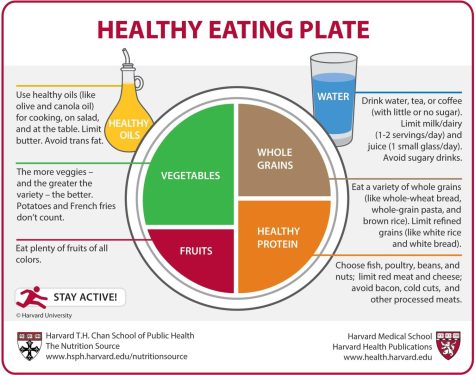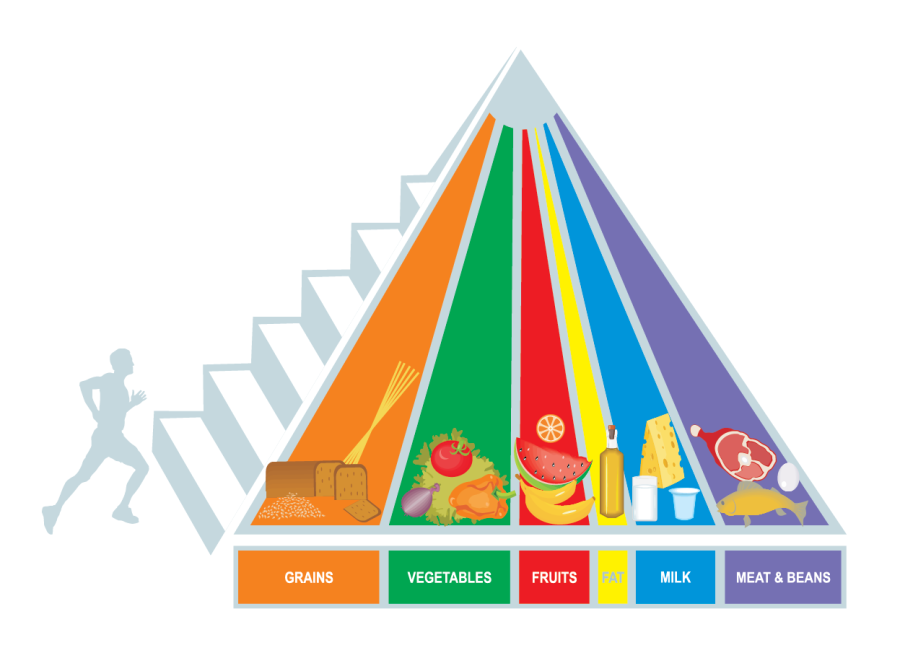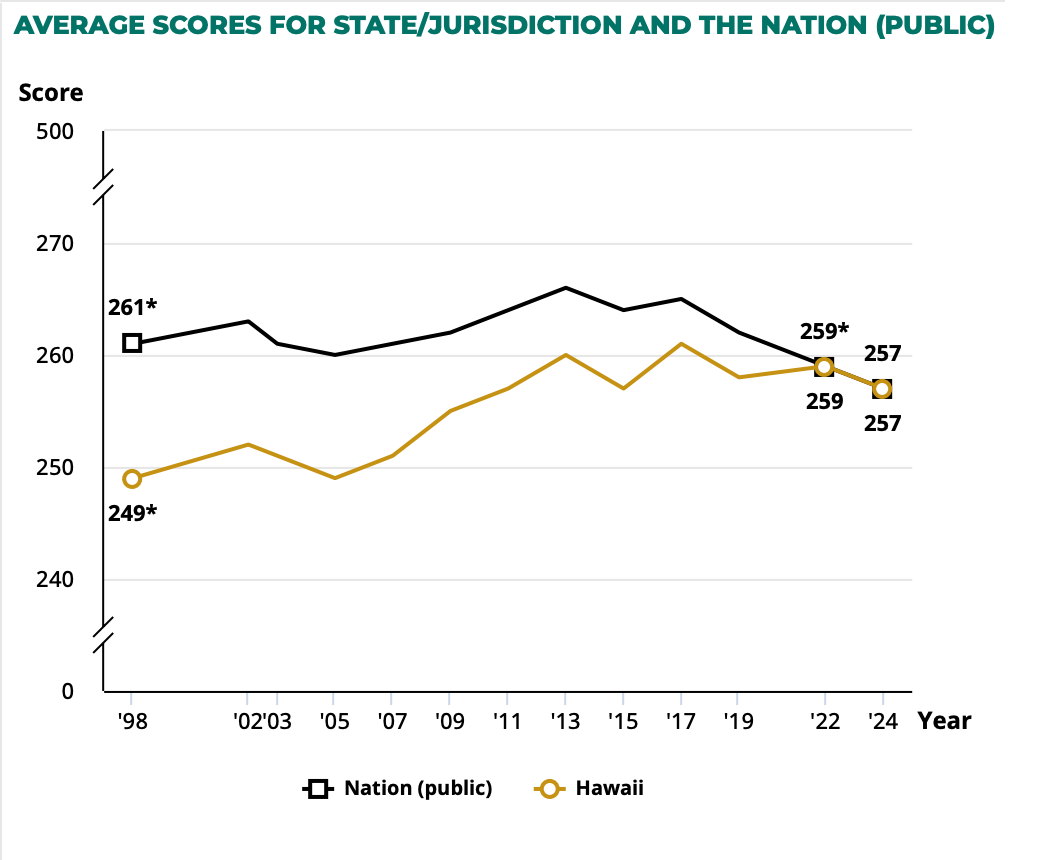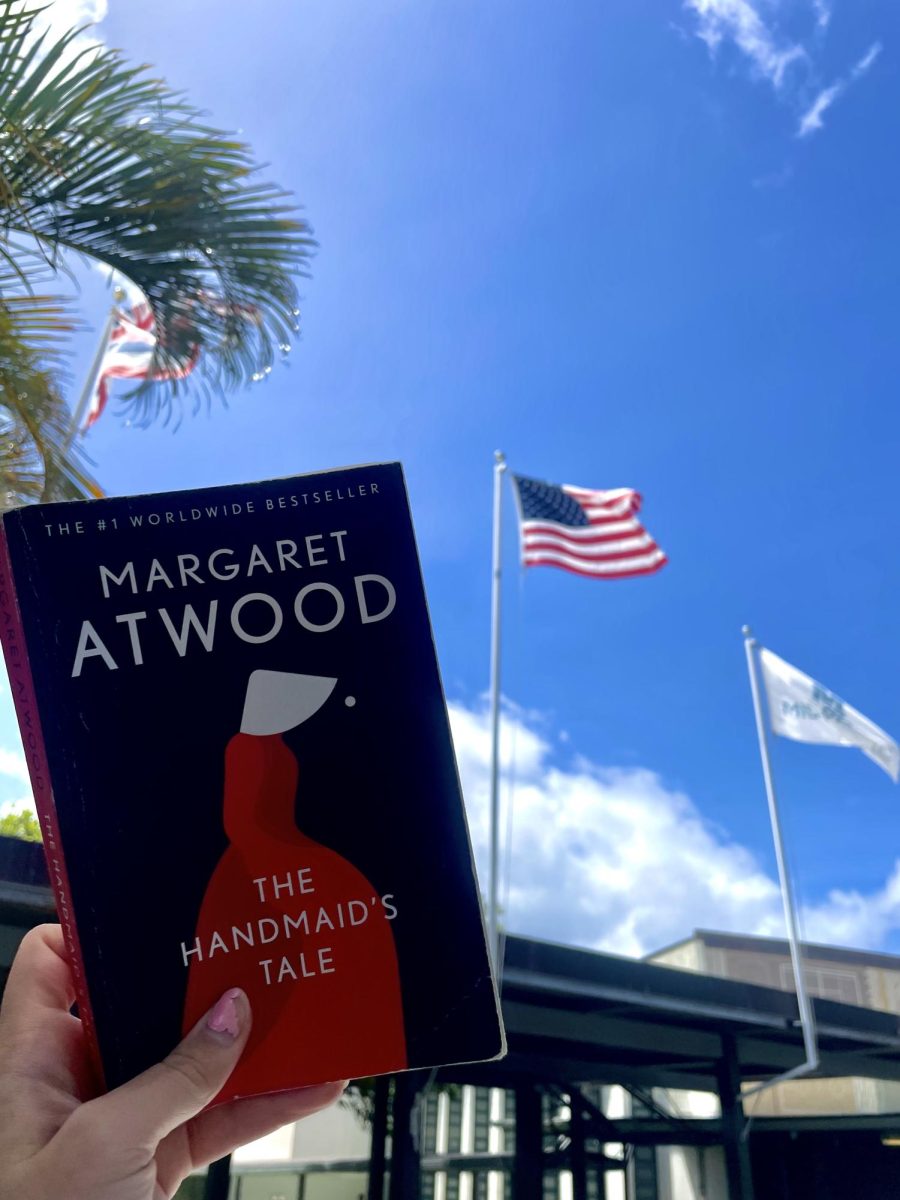Nutrition: Owner’s manual to a healthy lifestyle
The nutritional guidelines set by the USDA before 2011.
May 6, 2022
We grow up to believe that being and eating healthy is something dreadful.
After conversing with high school students, the typical answer to what they think a healthy day of eating is like was all similar to: “I’ll skip breakfast and have a salad for lunch.”
Restriction is typically what we do with food when we want to lose a few pounds or want to feel better about ourselves. But who was going to tell us that our definition of being healthy isn’t all what we think it is? Because in reality, being healthy should be a lifestyle and it’s not as bad as we make it out to be.
Without knowing much about nutrition, it’s easy to assume things about food and your body’s reaction to food using common sense. But it’s not all that simple. By clicking on the wrong link or gathering incorrect information from social media and the internet, it’s easy to get roped into false claims about what you should or shouldn’t put into your body.
When creating restrictions with food, it can cause eating disorders and create tainted relationships between food and an individual. The National Association of Anorexia Nervosa and Associated Disorders says that 35-57% of adolescent girls engage in harmful dieting without being aware of the possible outcomes of their actions. There are countless amounts of life-threatening effects that can happen when you aren’t meeting your nutritious needs. We then conversed with a few teenagers that have developed eating disorders based on their lack of knowledge on nutrition.
A high school junior said, “I wish I knew beforehand about what nutrients I needed in my body instead of relying on social media for information.”
She then said, “I was constantly worried about the wrong things, like a specific food having too many calories. These thoughts about what I was eating ended up taking over and I would think about food 24/7.”
It got to the point where she was the one that felt controlled by food rather than the other way around. “The fear of gaining weight is what fueled me to keep restricting what I consumed and I had no one to tell me what I was doing was wrong and harmful,” she said.
A 17-year-old senior opened up about her experience. “I started off by restricting myself from foods that we call unhealthy, such as pizza, cookies, ice cream, et cetera. But I hadn’t known that restriction will evidently cause you to crave those foods more. I cut down my calorie intake for about nine months and suffered the consequences soon after,” she said.
For the last 3 months of under-eating, she received low heart rate alerts on her apple watch every night and when she went to her doctor’s office, her heart rate was concerningly low. “I had to do multiple blood tests, take my blood pressure everyday, and meet with a cardiologist on top of my nutritionist,” she said.
Regretfully she adds, “I didn’t know an ounce of accurate nutritional information and what not eating enough could do negatively to my body.” Now that she is in recovery and is trying to bring her heart rate and blood pressure back to normal but she isn’t allowed to run. “It sucks because running is something I genuinely love to do but I can’t because of how clueless I was with food,” she said.
These are just a few examples of students that have unintentionally created bad relationships with food because of how little they understood about the importance of nutrients that their body needs to function properly. That being said, we still have the chance to prevent others from facing this problem.
If the importance of nutrition and the effects of being undernourished was simply taught to students in school, it could hypothetically prevent more students from developing a bad relationship with food. The CDC says, “the percentage of schools providing required instruction on nutrition and dietary behaviors decreased from 84.6% to 74.1% between 2000 and 2014.” As time passes, the percentage will keep decreasing unless action is taken.
There should be nutrition classes held at school. If these lessons are taught and required for middle and high schoolers, each student will have at least a foundation of knowledge on diet and nutrition. “I think all students would benefit from it,” said Daryl Ann Smith, RDN, LD, CEDRO, the 17-year-old’s nutritionist.
Talking to this dietitian specialist validates every reason why nutrition should be taught to all students. “In cases of undernutrition, you can have a lot of symptoms. You can have fatigue. You can have anemia which means you’re not breathing well; you get shortness of breath when you walk up a flight of stairs,” she said. This absolutely confirms how dangerous it can be for an individual that is unaware of what their body needs to survive. “There are a lot of symptoms that can really interfere with your functioning as a human being and especially as a student. It can cause a decrease in focus and concentration in your studies,” she noted.
One thing that all students should know is that a crucial part of nutrition is implicating each food group into your meals. “Food groups are designed by nutrient components. The groups were designed to provide a wide array of nutrients which is why we try to balance our meals. To get the macro (proteins, carbs, fats) and micro (vitamins, minerals) nutrients. Helps to ensure that you’re getting the wide spectrum of nutrients that your body needs,” Smith adds.

“It’s critical not just for college. Your bodies in high school are growing more than they will in college so your nutrition for your population is extremely important because you have growth needs. This means that your nutrient needs are higher than most people,” Smith said.
It’s time to finally take action and prevent more students from risking their health. A good segue to start opening doors for more nutritional information to be shared is by starting a club to begin spreading valid information. Schools can gradually introduce more nutritional information in different ways.
“Nutrition is like your owners manual. To know nutrition is a good way of knowing how to self care and that knowledge will be helpful your entire life,” Smith said.







